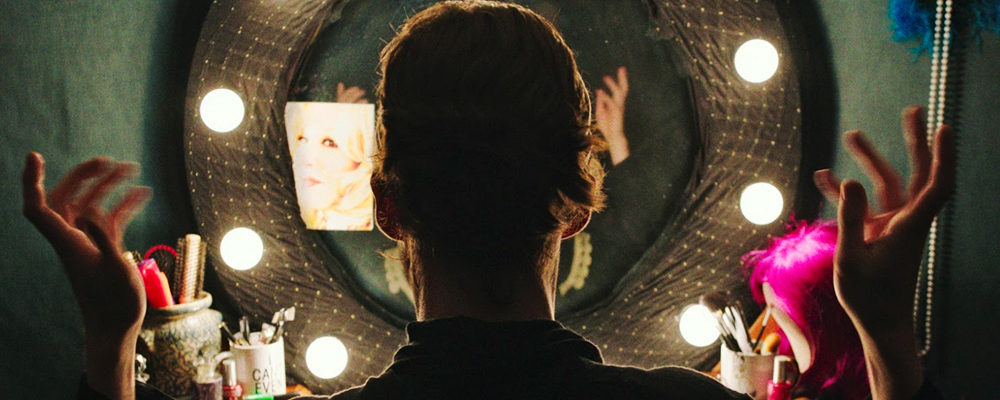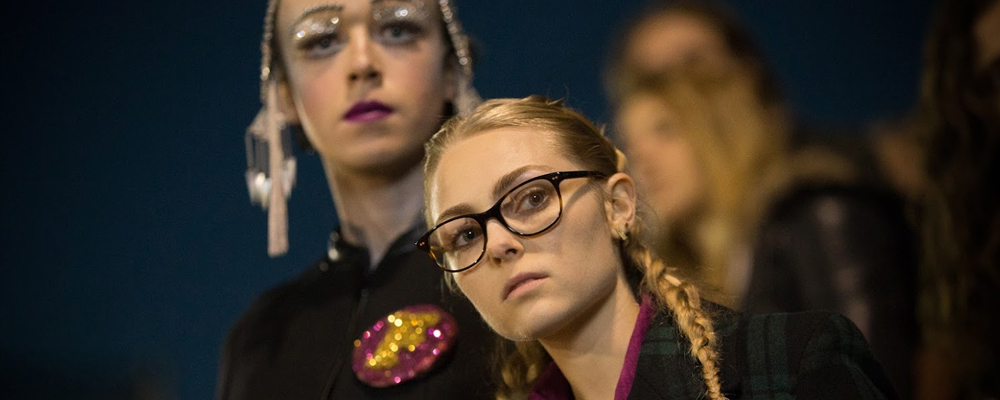Gender-Bending ‘Freak Show’ Celebrates the Acceptance of Identity
Alci Rengifo
“Freak Show” is carried by a convincing and engaging performance by Alex Lawther. The character of Billy Bloom is one of those personas who is all rebellion and fierce independence. Lawther brings the character to life with such flash and spirit that he manages to overcome some of the movie’s minor shortcomings. It’s an overall youthful tapping into the zeitgeist, exploring the trials of identity in a modern high school setting. Despite the very liberal tone of the times, full acceptance of gender diversity or gender defiance isn’t a sure thing everywhere. “Freak Show” wants to be a young adult parable about transgender as rebellion against the status quo. Sometimes it gets too on the nose, for example a bigoted character grabs a microphone and says “let’s make America great again.” But the performances are good and the screenplay can have moments of real complexity and conflict.
Billy Bloom is a big city teenager and proud cross-dresser mostly raised by his glamourous (but quite alcoholic) mother, Muv (Bette Midler), while his wealthy father William (Larry Pine) keeps a stern eye. Soon Muv and William separate and Billy is forced to move into his father’s mansion in a rural city where is enrolled at the local high school. Out here the culture is conservative and jock-obsessed. Making a grand entrance on his first day in class, Billy soon catches everyone’s attention with his flamboyant style of dress and attitude. But he also finds himself bullied and violently assaulted. Billy soon makes friends with a football player named Flip (Ian Nelson), who harbors a secret love for the arts. Defying the ongoing social hostility on campus, Billy decides to carry out the ultimate shocker and launches his candidacy for Homecoming Queen.
Like the most resonant high school dramas, “Freak Show” celebrates the sense of being an outcast. Based on a young adult novel of the same name by James St. James, it uses Billy’s cross-dressing personality as a way of exploring teen conflicts revolving around personality, identity and herd mentalities. This is the directing debut of Trudie Styler, an actress with 30 producing credits already under her belt. She films this story with a stripped but elegant visual style. The cinematographer is Dante Spinotti, who is renowned in particular for his work with Michael Mann in films like “Heat” and “The Last of the Mohicans.” Here he goes for a more hand-held “indie” look that gives the story a stark realism, but when Billy dons his luxurious costumes and gender-bending designs, Spinotti goes for more glamorous colors, contrasting Billy’s character with the cold, conservative world he now copes with.
Some are already comparing this film to “Glee,” and that’s a bit unfair. It does have a very teenage feel, but it does work at not making the characters so one-sided. Billy himself is a complex hero who is fighting off bigotry while dealing with the fact that he is somewhat elitist, showing off his big vocabulary and looking down at his peers’ sense of style. It’s easy to root for his cause, but he too learns some valuable lessons during the journey. The screenplay by Patrick J. Clifton and Beth Rigazio does an expert job at capturing the snarky, youthfully ignorant language of teenagers. Once the Homecoming race kicks off they show no mercy to the ideological enemies of this story. Billy’s competition, the self-absorbed Lynette (Abigail Breslin), frames the election as between God and debauchery, delivering speeches that would make Roy Moore proud. There are also quieter, hurtful moments where Billy faces other rigors of growing up. He obviously like Flip, but while they share a common love for art, they don’t share the same sexual preferences. The moments between the two are written with a convincing, easy going tone and it was nice to see the film settle for subtly as opposed to unneeded melodrama. Tyler takes their friendship seriously and when things are shared they are done with convincing, clumsy hesitancy.
The film isn’t perfect and feels slightly rushed and underdeveloped in a few sections. But the performances are what make this movie. Alex Lawther never strikes a false note as Billy and creates a person with big and small details. He’s highly intelligent, eloquent but with an ego, and he harbors inner scars that come out in a frown or half-hearted smile. Billy brings back memories of those classmates who always stand out because of their force of their personalities. For Lawther this film is a very good introduction of his talents to a wider audience. Bette Midler is a convincing mess as Muv, and we wish the character had been developed a little more. She’s essentially onscreen as both the anchor and subsequent disappointment for Billy, but the script rushes her character’s big change and we’re left wondering if a simple offscreen death might have sufficed. It’s the teenage cast that shines in this movie. Breslin sells us on her performance as a hateful cheerleader, who isn’t really evil, but just plain ignorant.
“Freak Show” is a decent indie movie with a clear message and a memorable lead performance. There are so many forgettable characters at the movies that we’re grateful to get one like Billy. This is a good example of how a strong role can help a movie transcend its imperfections.
“Freak Show” opens Jan. 12 in select theaters.


